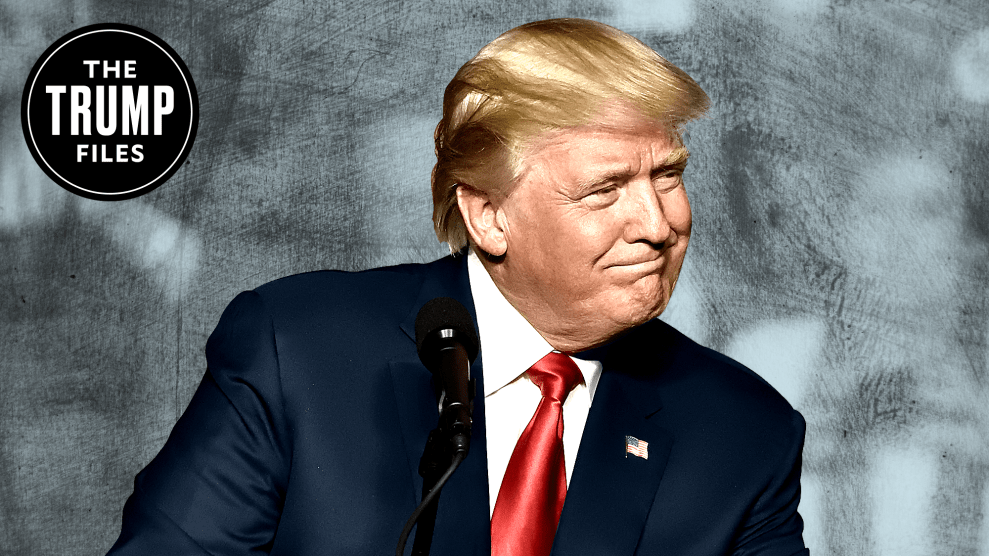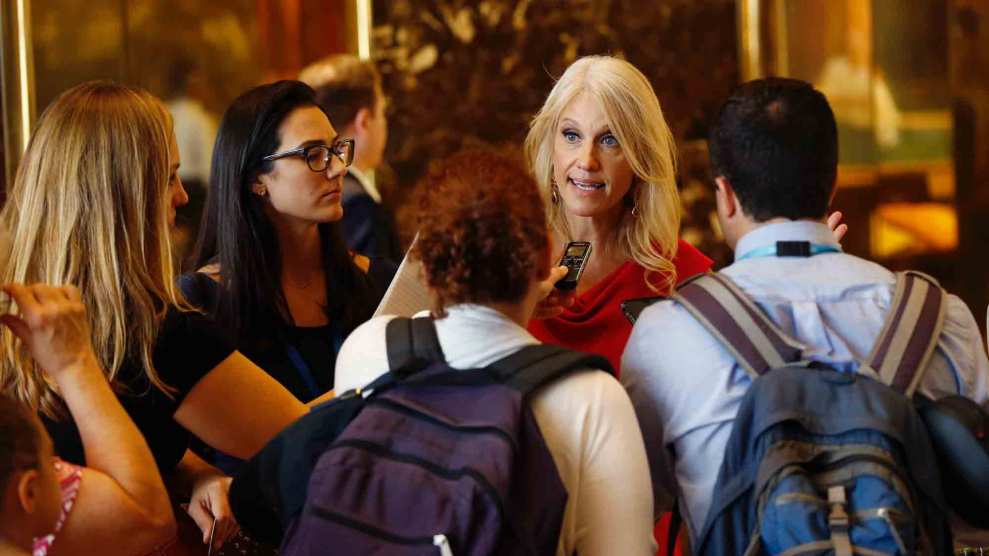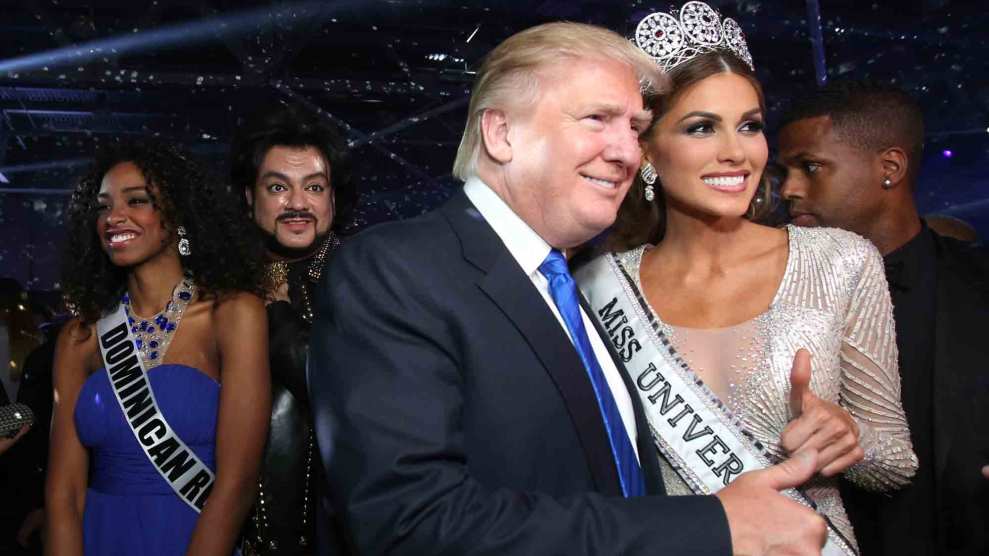
Mother Jones illustration; Shutterstock
This post was originally published as part of “The Trump Files”—a collection of telling episodes, strange but true stories, and curious scenes from the life of our current president—on June 23, 2016.
Donald Trump’s shadowy ties to the mob have been no secret in this election cycle. And in 1982, a member of Philadelphia’s mafia was the only thing standing between him and more land for his Trump Plaza casino hotel.
That year, Trump bought a nightclub owned by a notorious Philadelphia mafioso, Salvatore A. Testa, according to the Philadelphia Inquirer. Trump told the paper in 1983 that he wanted to use the space for parking facilities for his casino hotel.
The club, called Le Bistro, had previously been purchased by Testa and a partner named Frank Narducci Jr., both of whom faced bitter fates for their involvement with the mafia. Testa would wind up shot to death in 1984 just weeks after a fight with mob boss Nicky Scarfo, according to the Inquirer. Narducci, who the Inquirer said had transferred his stake in the club to Testa in 1982, was sentenced to life in prison in 1989 for his role in a mob murder.
Le Bistro, which had been languishing vacant for years since the owners were denied a liquor license, was purchased from the mobster for $1.1 million. Conveniently for Trump, the transaction went through a third party so his name would not be revealed. That third party? A secretary of Trump’s lawyer on the purchase, Patrick T. “Paddy” McGahn Jr. McGahn told the Inquirer that if Testa had known who was buying his nightclub, “the price they asked could conceivably have been $2 million to $3 million.” After the sale, the property was transferred to Trump, McGahn said.
The club was “the second most expensive purchase he made on the block” in Atlantic City, New Jersey, according to journalist Wayne Barrett’s book Trump: The Greatest Show on Earth: The Deals, the Downfall, the Reinvention. Although Trump had redirected the sale through his lawyer’s secretary to conceal his identity, Barrett reported, he still bragged in an affidavit about his “unique contribution” in putting together the land for the parking structure.
The Trump Plaza closed in 2014, costing more than 1,000 people their jobs.


















